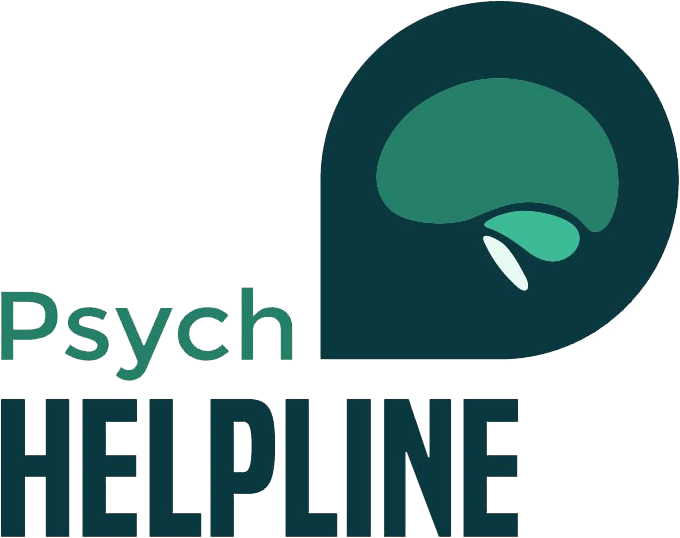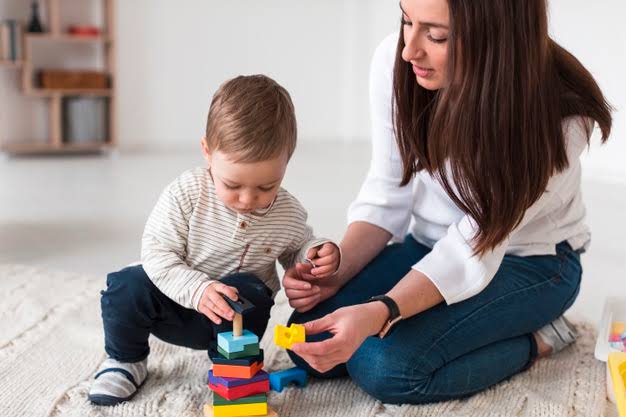Table of Contents
Searching for dedicated child therapists in your locality? Well, it’s your turn to do your homework before you step into this never-explored-before trajectory. Child therapists are trained practitioners that target developmental concerns, mental disorders, and disabilities among young ones. Their targeted clientele primarily consists of adolescents. Here’s more on how child therapists play a huge role in the life of less resilient and traumatized children. We’ve also entailed how you can ensure that your child attends a child therapist’s sessions with more ease. Let’s take a look;
What’s All The Fuss About
If you’ve got any doubts, they’re about to get diminished. A child therapist or attending psychotherapy can be advantageous for children in some of the following manners;
- It gradually diffuses the tension kids experience during transitional stages. For example; resorting to normalcy after being adopted into a new family. Another transitional phase that can be eased up via therapy can be the one kid’s experience after their parents get a divorce.
- Talking to a child therapist during the calm before the storm can also be pretty excellent. A great example of this would be attending child therapy before a legal custody battle. In this manner, a child therapist can mentally build resilience in a child for the events that are about to befall them.
- A child therapist can reduce or diminish the psychological impact of traumatic events. Witnessing a murder, abusive act, accident or climatic disaster can instill PTSD and fear in the sensitive mind of a child. When left untreated it can show ill consequences in their present and future life.
- Children who’ve survived any form of abuse (albeit sexual, physical, mental, or emotional) can be highlights dependent on a therapy program that actually works. Therapists specializing in children keenly focus on harboring a positive environment for young survivors. A child therapist can also introduce some positive coping mechanisms after making further inquiries and studying an individual’s case.
- Children who’ve experienced abandonment at the hands of a guardian or parent can harbor trust issues. Emotional imbalance and angry outbursts are also one of the many consequences of childhood abandonment. A child therapist can mend a child’s broken bond with a returning guardian. Additionally, therapy also targets the psyche of a child in a manner that helps them get over any trust issues in the future.
- Attending sessions with a therapist can relieve the discomfort experienced by kids who have irrational phobias and compulsive disorders.
5 Signs Indicating Your Child Needs The Help Of A Child Therapist
Changing Habits
Apart from physiological changes in the growing stages children go through various psychological changes as well. As they are maturing you might notice slight changes in their habits. Now, these slight changes might not ring the alarm bells inside your head but drastic changes can be huge red flags. These drastic changes that we’re referring to may include changes in eating habits, socialization, sleeping schedule, etc. If your kid’s focus has dramatically shifted from learning, it can indicate the onset of a learning disability.
These signs can indicate that your child is perhaps dealing with an undiagnosed eating disorder or simply sleeping away their sadness. It’s better to be safe than sorry that’s why these can all be taken as textbook signs indicating your child’s need for psychological assistance.
Behavioral Alterations
Oftentimes, kids who’ve been relatively well behaved in the past, start behaving quite rudely. It’s a sudden change that can be a precursor of something huge. Some great examples of these negative behaviors may include; engaging in brawls at school, bullying other kids, misbehaving with peers/family members/teachers, acting out tantrums at the most random moments, getting into trouble without the fear of consequences, breaking rules, etc.

Prolonged Isolation
Has your child suddenly started withdrawing from friends and family members? It might seem farfetched but there could be a grand reason behind this. Prolonged isolation of this kind can be indicated by your child’s withdrawal from performing activities that he once used to love.
Your child might start avoiding chances to mingle with people of a similar age group, attending friends’ birthday parties, or annual school functions. Another clear indication would be spending more time inside their bedroom instead of the playground among other peers. Such children usually don’t have many friends And even when given the chance decline any new efforts to make new friends.
Red Flags & Suicidal Tendencies
The concept of death or dying is quite a morbid one. It can be even more morbid if the person asking questions is your child. This topic can seem like a foreign concept for children and one can always see how it can be an interesting topic of discussion for them. If the conversation’s not turning obsessive then all is good. But if you’re noticing that your child’s repeatedly talking about morbid topics like suicide and death etc. Perhaps something might actually be wrong. It is indeed a huge red flag and could be an indicator of suicidal tendencies.
Another clear indicator would be any kind of self-destructive behavior exhibited by your child. He/she might try their hand at self-mutilation. Another good example would be destroying any toys or items lying around in their room. This extraordinary obsession with death and morbid topics can indicate that your child has witnessed something he was not supposed to witness. Young minds are not mentally prepared for such realities at such young age. So, that kind of curiosity can always backfire.
Constant Sadness & Inability To Adjust
Life is a journey consisting of huge ups and downs. It is categorized by various changes of temporary and permanent nature. Sometimes even adults find it harder to adjust to these changes. So it can be concluded that children might find it harder to adjust to some of these huge life changes. Some common examples would be; The divorce or marriage of a parental figure, changing schools, moving away from a locality, the death of a friend or close relative, surviving an accident or climatic disaster, surviving or facing abuse, the addition of a new sibling to the family, etc.
When a child fails to adjust to these foreign conditions he or she might experience discomfort or in extreme cases constant stress. Under the impression of constant stress, he/she may fail to function academically and in other areas of their life. So if your child is also struggling to adjust to new circumstances after a traumatic or life-altering event he/she might require therapy.
Preparatory Measures: How To Find A Child Therapist For Your Kid?
- Now that you have figured out that there’s something that needs help how on earth does one locate a dedicated child therapist. Perhaps the easiest way of finding a good child therapist would be to ask your kid’s pediatrician for suggestions. He might refer a few names to you or you can check the local listings to find some top-rated names. Furthermore, before you land on a final choice you’ve got to make sure that you’re faced with someone who actually specializes in dealing with children.
- Treating kids and adults both requires two entirely different skill sets. Thus finding a therapist that specializes in dealing with children should be the final call. The second most important query that troubles parents would be about making any preparatory measures before the first session. Of course, as a parent, you’ll be arriving at your kid’s therapy sessions with a lot of questions in your mind.
- Before the session and arriving at the location make sure you write down a couple of questions that have been troubling you regarding your child’s condition. Jotting something down before the event ensures that you don’t leave out any of the additional information that you wanted to ask about.
- It’s better if you carry some paperwork entailing your kid’s casual interests, abilities, academic performance, etc. The only reason behind this is that it just gives a more vivid idea to a child therapist regarding your kid’s psyche, personality, intuition, creative capabilities, and character.
- The first session’s going to be solely all about bonding with the child and his family. During the beginning, your child’s therapist will intend to draw out as much information as he/she can regarding your child. So, you should be prepared to answer some personal questions. Some commonly asked topics are; the presence of any signs of mental illnesses among close family members, any developmental delays, underlying medical issues, any traumatic events that might’ve affected your child, etc. Extracting this information can help a child therapist in creating a better treatment plan/strategy for your kid.
- Make sure you also leave out space for some coping mechanisms suggested by a therapist that can ease up your child. Another great step would be filling out the paperwork beforehand. Consequently, the whole process would be a bit smoother and you’ll also end up saving some time.
What Kind Of Questions Should You Be Asking A Child Therapist?
First and foremost, you should be inquiring about your child therapist’s credentials or any additional certifications. Additionally, here are a few questions that might be on your mind and you should be asking a child therapist;
- In what way can we easily explain child therapy to our kids so they don’t end up confused?
- How many times a week should you suggest meeting up for sessions?
- How can we track the success rate of these therapy sessions?
- Do you as a child therapist have any goals in mind concerning our kid’s therapy sessions?
- Will this treatment plan solely rely on therapy sessions or you’ll be including medication?
- If your treatment plan includes medication, are there any side effects we should be keeping an eye out for?
- Can this treatment plan be supported via insurance?
- Can we, as parents of the child, be provided with an outline entailing the treatment plan?
- Is there a way we can easily communicate with you regarding our kids’ therapy sessions?
- Will you only conduct individual sessions with our child or are there going to be any family sessions with us present?
How To Prepare Your Kid Before Meeting A Child Therapist?
Young minds are bound to get confused pretty easily. Therapy can be a pretty foreign concept for young kids which is why there is a need to prepare them before the first session. usually, this task lands in the hands of the parents as they try to mold the young minds of their kids. In this case, slow exposition works well. Don’t just absentmindedly take your children to therapy sessions without having an earlier talk with them. Help them understand why there’s a need for therapy and how attending therapy can be beneficial for them in the long run.
Your child might take time to absorb this very idea but sooner or later he or she might understand that it’s all for their benefit. Once they understand that what’s being conducted is more advantageous for them they might be more open to answering questions and cooperating during therapy sessions.
School-going kids are usually familiar with the concept of school counselors. So you can draw out some similarities among a child therapist and school counselor to make your child feel more comfortable with the possibility of attending therapy. You can even try to use visual and literary mediums to your advantage. There are multiple children’s books regarding therapy that can introduce the concept more gradually to young readers. Docu-series and films can also serve as a much more easily digestible introductory means to child therapy.
Final Words
Try to introduce your child to the concept of therapy as gradually as you can so they open up to its possibility more quickly. It is a therapist’s job to make their clients feel more at home during sessions. Yet parents can make the job much easier by creating a dialogue with their child before sessions.







